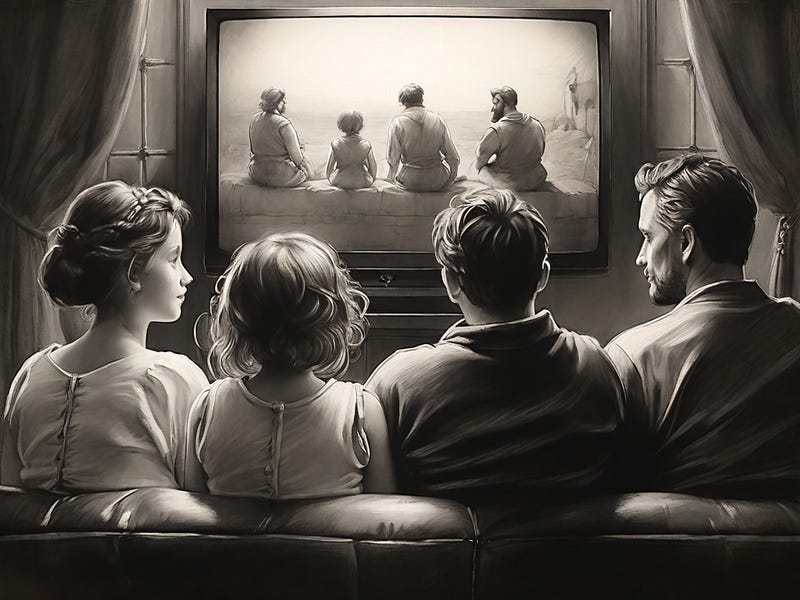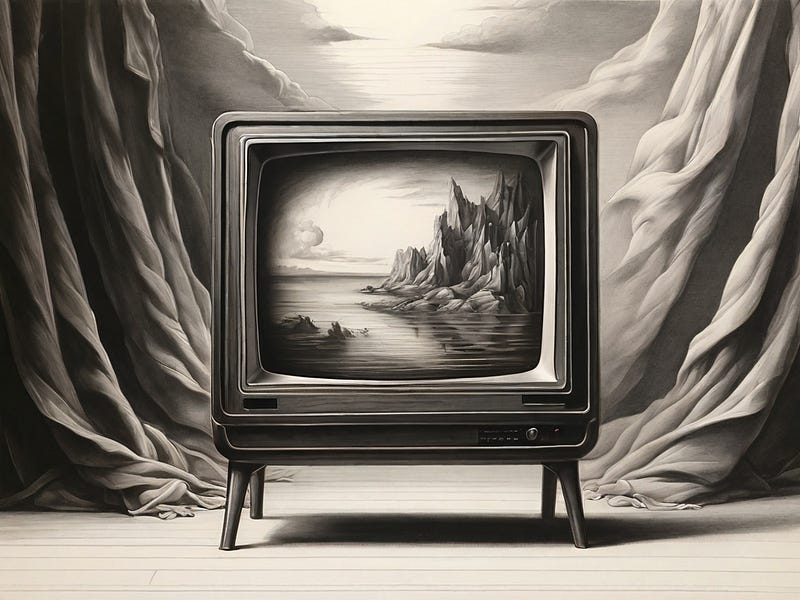The Dilemma of Television: Good Habits vs. Bad Habits
Written on
The Question of Television's Relevance
Is television still a common form of entertainment? Personally, I don't engage with it, and I see little reason to start.
Someone advised me to reconsider my stance on television. Honestly, I have never been a regular viewer, and currently, I have no interest in it. This got me thinking: do people really still watch TV?
For me, television has always seemed like a significant time-waster. In fact, I’d estimate that about 90% of what’s broadcast is utter nonsense—mindless entertainment that lacks quality. The production effort appears minimal, and a substantial portion of airtime is consumed by commercials.
It often feels like a scam; you invest countless hours in exchange for fleeting enjoyment, mostly benefiting the network's bottom line.

The Meaning Behind Television
So, what’s the purpose? Is it not crafted for exhausted individuals returning from jobs they dislike? Is it merely an escape for those dissatisfied with their lives?
If this is the case, it’s alarming to think that many people still turn to television. It serves as motivation to help those who might be lost and searching for a better path.
Now, many argue that they watch the news to stay informed. But, I pose a question: what’s the actual benefit?

The Value of News Consumption
Knowing about a distant conflict doesn’t enhance your life. In fact, it often brings unnecessary distress. If something truly significant occurs, you’ll hear about it through word of mouth, not by tuning into the news.
To me, dedicating time to television seems unjustifiable. Although many say they do it to unwind, I struggle to understand that sentiment. Very few programs provide genuine relaxation; most mainstream content is far from soothing.

Streaming Services: The New Television
Many might not classify platforms like Netflix as television, but I do. They share the same essence, albeit often with higher quality content. Yet, a significant amount still exists primarily for profit.
I’ve recently come to appreciate the value of my time. I realize that time is limited, and proactive engagement is essential. This understanding can eliminate the need for detrimental habits.

The Comparison: Television vs. Reading
Why do people prefer binge-watching instead of binge-reading? The answer lies in the challenges and entertainment value of each option. Reading often requires more effort and yields less immediate gratification, as it involves processing meaningful information.
Television, on the other hand, offers easily digestible content that’s quickly forgotten. Moments after viewing, the details slip from your mind.

The Long-Term View on Happiness
If you’re not deriving lasting benefits from television, why spend your precious time on it? You could focus on learning, enhancing your skills, and progressing in life. Instead of seeking transient pleasures, consider investing in your future.
Would you rather experience happiness for an hour today or cultivate joy for a lifetime ten years from now? Most people opt for immediate gratification, unable to envision or trust a future happiness that feels too abstract.
Take action today. Start reducing your consumption of trivial content and focus on your long-term goals.

Video Insights on Television Consumption
In this video, we explore the growing trend of viewers choosing to watch shows and films with subtitles, examining the reasons behind this shift and its implications.
This video discusses the top three strategies for enjoying television content without spending money, providing valuable tips for budget-conscious viewers.
Closing Thoughts
Thanks for taking the time to read this reflection. If you found value in it, please consider showing your support by clapping for this article or sharing it with someone who might benefit. Additionally, subscribe to my newsletter for more insights.

P.S. I'm currently working on a book about minimalism. If you're interested, you can join my waiting list for exclusive updates and privileges.